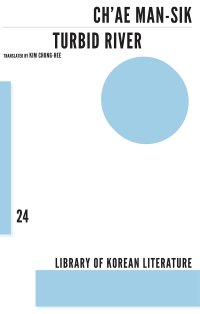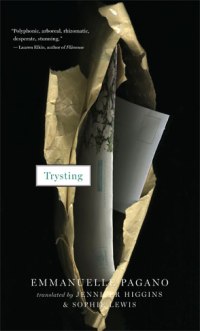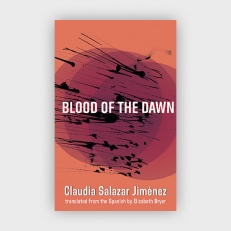compiled by Maggie Zebracka
Cabo de Gata by Eugen Ruge
Translated from the German by Anthea Bell
Published by Graywolf Press
An unnamed writer finds himself in Cabo de Gata, a sleepy, worn-down Andalusian fishing village. He’s left behind his life in Berlin, which it turns out wasn’t much—an ex-girlfriend, a neighborhood that had become too trendy for his taste. Surrounded by a desolate landscape that is scoured by surprisingly cold winds (not at all what he expected of southern Spain), he faces his daily failures: to connect with the innkeeper or any of the townsfolk, who all seem to be hiding something; to learn Spanish; to keep warm; to write. At last he succeeds in making an unlikely connection with one of the village’s many feral cats. Does the cat have a message for him? And will their tenuous relationship be enough to turn his life around?
With sharp intelligence and wry humor, Eugen Ruge’s Cabo de Gata proposes the biggest questions and illustrates how achieving happiness sometimes means giving oneself up to the foreign and the unknown.
“The task Ruge has set himself is to painstakingly catalogue his memory of an uneventful 123 days in a quiet place (many paragraphs begin “I remember”), mark the comings and going of fishermen, and even the shapes of clouds. Ruge’s book is not a novel in the traditional sense, but something of a notebook that gradually reveals the shape of a life, the mood of a place, and the passing of time, as well as being a placid rejoinder to the autobiographical semi-fictions popularized by Karl Ove Knausgaard and Ben Lerner. Cabo De Gata a refreshing excursion, its moments effortlessly building meaning throughout.”
—Publishers Weekly
http://www.publishersweekly.com/978-1-55597-757-3
Eugen Ruge (born 24 June 1954 in Sosva, Sverdlovsk Oblast, Soviet Union) is a German writer, director and translator from Russian. In 2011 he won the German Book Prize. In 2011 he debuted as a novelist with the title In Times of Fading Light, which won the German Book Prize and the Alfred Doblin Prize. The novel has been translated into English by Anthea Bell. As a translator from Russian, Ruge has translated Chekhov among others.
Anthea Bell has worked as a translator of German and French into English for many years. Her translations from German include modern and classic fiction by authors including E.T.A. Hoffmann and Kafka, several novellas by Stefan Zweig and his memoir The World of Yesterday (Pushkin Press, 2009). Her translation awards include the 2002 Independent Foreign Fiction Prize and the Helen and Kurt Wolff Prize (USA) for the translation of W.G. Sebald’s Austerlitz (Hamish Hamilton, 2001). She has been awarded the Schlegel-Tieck prize several times: for Hans Bemmann’s The Stone and the Flute (Viking) in 1987, for Karen Duve’s Rain in 2003, and for Stefan Zweig’s Burning Secret (Pushkin Press) in 2009. In 2003 she received the Austrian State Prize for Literary Translation and in 2010 she was awarded an OBE (Order of the British Empire) in recognition of her “services to literature and literary translations”. In January 2015, the German ambassador presented the Cross of the Order of Merit of the Federal Republic of Germany to Anthea Bell. The translator takes a particular interest in the translation of books for children and young adults.
 Turbid River by Ch’ae Man-Sik
Turbid River by Ch’ae Man-Sik
Translated from the Korean by Chung-hee Kim
Published by Dalkey Archive
Turbid River was written just before Ch’ae Man-Sik was arrested in 1938 by the Japanese colonial government. Like the two novels that followed (Peace Under Heaven and Frozen Fish), Turbid River is a realistic portrayal of life in Korea under Japanese colonization. The tragic story of a woman’s life, the novel is also a penetrating look into the objectification of women.
Ch’ae Man-Sik was born in Okgu, North Jeolla Province in 1902. He produced works that authentically showcased the social realities and conflicts of the time such as “My Innocent Uncle” (1938), Peace Under Heaven (1938), and the play The Legend of the Mantis (1940), among others. Afterwards and until his death on June 11, 1950, shortly before the outbreak of Korean War, he reproached the pro-Japanese actions of Korean intellectuals at the end of the colonial period in his work and also produced satires of contemporary society in post-Liberation Korea.
Chung-hee Kim is a translator of Korean literature.
Trysting by Emmanuelle Pagano
Translated from the French by Jennifer Higgins and Sophie Lewis
Published by Two Lines Press
What is love? Why do some people make our hearts flutter, while others leave us cold?
A seductive blend of Maggie Nelson and Marguerite Duras, Trysting seizes romance’s slippery truths by letting us glimpse nearly 300 beguiling relationships: scenes between all genders and sexualities. Proving that the erotic knows no bounds, almost anything can be a means of attraction: from amnesia and throat-clearing to sign language, earplugs, back hair, arthritis, PVC, and showers. Combining aphorisms, anecdotes, and adventures, Trysting is a tour de force that gives a new perspective on a question as old as humanity.
Pagano’s English-translation debut collects, in a torrent of brief vignettes, many lifetimes’ worth of heartbreaks, secret moments, reminiscences, betrayals, fantasies, voyeurisms, and disappointments, all deftly translated in Higgins and Lewis’ full and limber prose. Following in the epigrammatic path laid by Félix Fénéon’s Novels in Three Lines, this book is hardly less varied for casting its gaze on a single, messy corner of our experiential universe. In this way, it conjures the spirit of Edgar Lee Masters’ Spoon River Anthology, dealing in life’s ardent undertows, which, in some form or degree, are nearly as inescapable a part of the human experience as the ends that befell the residents of Masters’ “The Hill.” Pagano delights and surprises with uncanny observations, each sounding a small point of emotional truth, like a well-aimed pebble pinging off a windowpane. Take for example, these complete entries: “She was only with me to have somewhere to write to, an addressee,” and “Life with him is so easy and sweet and joyful. I have a feeling he’s cheating.” You may find yourself laughing out loud in recognition or looking up and around an empty room, wondering if any number of these compact scenes had somehow been lifted straight from your own private journal—or the hidden folds of your memory. Delicate and poignant, the book abounds with the ups, downs, and stagnations of the subject of focus itself. Because of the imposed constraints of the form, the commitment to the episodic and angling toward aphorism, the book expends no energy on overall forward movement, and so some may find this collection better suited for intermittent rather than sustained reading.
-Kirkus Reviews
https://www.kirkusreviews.com/book-reviews/emmanuelle-pagano/trysting/
Emmanuelle Pagano is the recipient of numerous awards, including the European Union Prize for Literature for her novel Les Adolescents troglodytes. The author of seven works of literature with the prestigious French publisher P.O.L, she lives in Ardéche, France.
Jennifer Higgins is a freelance translator and editor based in Oxford, U.K.
Sophie Lewis’s translations include The Earth Turned Upside Down by Jules Verne, The Man Who Walked Through Walls by Marcel Aymé, and Thérèse and Isabelle by Violette Leduc. An editor at large for And Other Stories Publishing, she lives in London.
 Blood of the Dawn by Claudia Salazar Jiménez
Blood of the Dawn by Claudia Salazar Jiménez
Translated from the Spanish by Elizabeth Bryer
Published by Deep Vellum
An award-winning debut novel of politics, desire and pain by Peruvian author Claudia Salazar Jiménez. The lives of three women intertwine and are ripped apart during what’s known as “the time of fear” in Peruvian history, when the Shining Path rebel insurgency was at its peak.
Claudia Salazar Jiménez, born in Lima, Peru in 1976, one of the most recognized Peruvian writers of her generation, is also a literary critic, professor, cultural manager, and the founder of the literary journal Fuegos de Arena. She studied literature at the Universidad Nacional Mayor de San Marcos and holds a PhD from NYU. She edited the anthologies “Escribir en Nueva York” (2014) about Hispanic American Narrators and “Voces para Lilith” (2011) on contemporary South American women writers, and is also the founder and director of PERUFEST, the first Peruvian cinema festival in New York.Her debut novel Blood of the Dawn was awarded the Las Americas Narrative Prize of Novel in 2014. She also received the TUMI-USA Award in 2015. Her most recent publication is the collection of short stories Coordenadas Temporales (2016). She is currently based in New York City.
Elizabeth Bryer is a writer and translator from Australia. She writes about memory, identity and cultural imaginings; the ways we are shaped by place, history, myth and politics; and the interstices of science and art, and culture and nature. She has written for many Australian and US publications, links to which you can find on the ‘essays’ and ‘short fiction’ pages. Her work has also been broadcast on ABC Radio National and anthologised in Best Australian Science Writing.
In 2016 she is the recipient of an Australian Society of Authors Emerging Writers’ Mentorship, and received funding from the Ian Potter Cultural Trust and Copyright Agency’s Creative Individuals Career Fund to attend the Middlebury Bread Loaf Translators’ Conference in Ripton, Vermont, USA. She also curated Edition 4 of Seizure, which she dedicated to translation.
Maggie Zebracka is a graduate of Wellesley College and Vanderbilt University. Originally  from southeastern Poland, she currently lives and writes in West Texas.
from southeastern Poland, she currently lives and writes in West Texas.
